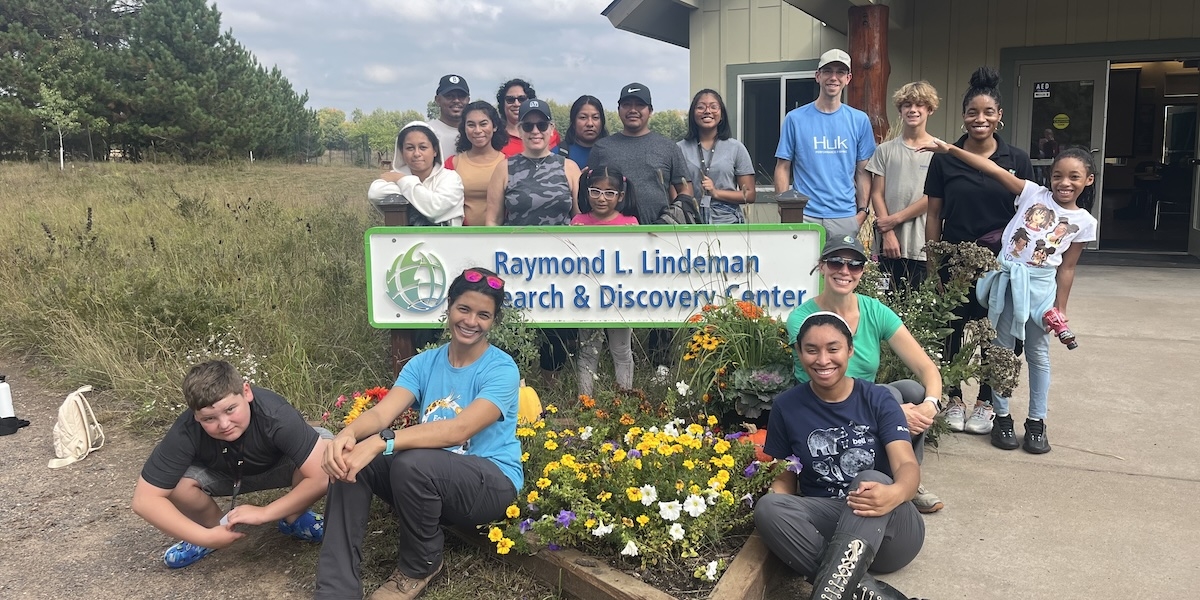
Talk to a biologist who does field research about what sparked their interests and they often point to an appreciation of pursuing discovery outdoors. In the field, knowledge from coursework and textbooks comes to life in the soil, leaves, plants or animals they want to learn more about. Cedar Creek Ecosystem Science Reserve, a College of Biological Sciences field station in East Bethel, Minnesota, in partnership with the Community Outreach, Retention, and Engagement (CORE) Program at the University of Minnesota, hoped an initiative offered during the 2023-24 academic year would help high school students find exactly that.
“CORE plays a crucial role in supporting not only students but also family engagement in STEM,” says Dr. Karen Castillioni, a postdoc researcher who conducts research at Cedar Creek. “Given our shared goals of promoting STEM engagement and diversity within the disciplines, we saw an opportunity to enhance our involvement by partnering with the CORE Program. We hoped that by engaging students in the CORE Program with field trips, they would have the opportunity to deepen their involvement with science beyond the confines of the classroom by exploring Cedar Creek.”
The CORE Program, part of the Office of Equity and Diversity at the U of M, helps students in the Twin Cities historically underrepresented in STEM engage in learning opportunities and prepare for college. In an effort to expand its own outreach efforts, Castillioni, graduate student Simone Maddox, Cedar Creek Education and Community Engagement Coordinator Dr. Kara Baldwin and other Cedar Creek staff used support from a grant from the College of Biological Sciences to work directly with CORE program staff to create curriculum and ecological research activities for students last year. Over the course of the program, Cedar Creek researchers met with students over four weekends during “Saturday Scholars” events to explore concepts in ecology. They also embarked on a field trip to Cedar Creek to explore habitat fragmentation and touring research plots.
“Cedar Creek was an exceptional experience that provided a unique opportunity for our High School Scholars,” says Delina Brown-Jackson, program manager for CORE. “Cedar Creek has educators that are well versed in their content, but also able to connect with students and their parents with culturally relevant real world connections.”
“It was also great that students could participate in work that researchers and scientists do every day,” continued CORE STEM Partner Coordinator Marisa Peczuh. “In some ways it’s a way for them to try out a STEM career and get a hands-on look at doing field research.”
In addition to the opportunity to get out in the field and explore biology in a new way, Castillioni hoped the experience would have a lasting impact on the students who came.
“By fostering connections with real-world scientific research, we aimed to inspire and empower students to envision themselves as future scientists or pursue education in STEM fields,” she says. “We also hope the program's emphasis on addressing key conservation concerns provided participants with practical tools and knowledge to understand pressing environmental issues.” — Lance Janssen